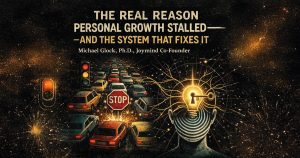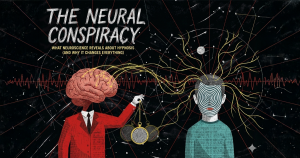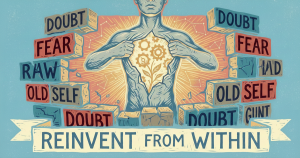I found myself wandering through an ancient forest, the trees towering above like silent guardians. The air was thick with mist, and a soft light filtered through the canopy, guiding my steps. As I walked, symbols and archetypes emerged from the shadows—figures that felt both familiar and mysterious. It was as if I was journeying through the depths of my own soul, uncovering layers of meaning hidden within.
When I awoke, the vividness of the dream lingered. I couldn’t shake the feeling that my subconscious was trying to tell me something profound. This experience led me to explore the realms of hypnotherapy and Jungian psychology, ultimately guiding me to the Joymind method—a transformative approach to self-discovery and healing.
The Intersection of Dreams and the Subconscious
Dreams have long been considered windows into the subconscious mind. Carl Jung, a pioneering figure in analytical psychology, believed that dreams are a means of communicating with the unconscious (Jung, 1964). They are rich with symbols and archetypes that represent universal patterns of human experience.
In my dream, the forest and the archetypal figures were not random; they were manifestations of my inner world. According to Jungian theory, such symbols are part of the collective unconscious—a reservoir of shared human experiences and knowledge (Jung, 1959). Interpreting these symbols can lead to greater self-understanding and personal growth.
Discovering the Joymind Method
Intrigued by the connections between my dream and Jungian psychology, I sought out ways to delve deeper into my subconscious. That’s when I discovered hypnotherapy and, specifically, the Joymind method. Hypnotherapy is a therapeutic technique that uses guided relaxation and focused attention to achieve a heightened state of awareness, often referred to as a trance (American Psychological Association, 2014).
The Joymind method integrates traditional hypnotherapy with principles of Jungian psychology. It aims to facilitate individuation—the process of integrating the conscious and unconscious parts of the mind to achieve a more complete self (Stein, 1998). This approach resonated with me, as it aligned with my desire to explore the depths of my psyche and address unresolved inner conflicts.
The Science Behind Hypnotherapy and Jungian Individuation
Research supports the efficacy of hypnotherapy in addressing various psychological issues, including anxiety, depression, and trauma (Hammond, 2010). By accessing the subconscious mind, individuals can uncover hidden thoughts and emotions that influence their behavior.
Jungian individuation involves recognizing and integrating different aspects of the self, including the shadow (unconscious desires and weaknesses), anima/animus (the feminine and masculine inner personalities), and the Self (the unified psyche) (Jung, 1959). Hypnotherapy provides a pathway to engage with these components on a deeper level.
The First Session: Entering the Subconscious Realm
During my initial Joymind hypnotherapy session, I was guided into a relaxed state similar to the one experienced in my dream. The therapist used techniques to induce a trance, allowing my conscious mind to relax and my subconscious to become more accessible (Lynn & Kirsch, 2006).
As the session progressed, vivid images and emotions surfaced. I revisited the forest from my dream, but this time, I could interact with the symbols and archetypes. I encountered the Wise Old Man—a Jungian archetype representing wisdom and guidance (Jung, 1959). He imparted insights about my life path and the obstacles I faced.
The Importance of Repeat Sessions
One session alone was enlightening, but the true transformation came through repeat sessions. Each hypnotherapy session built upon the last, peeling back layers of the psyche and facilitating deeper healing. Consistent engagement allowed for the reinforcement of positive changes and the continued exploration of the subconscious (Hammond, 2010).
The Joymind method emphasizes the significance of ongoing therapy to fully integrate the insights gained into daily life. This approach aligns with neuroplasticity—the brain’s ability to reorganize itself by forming new neural connections throughout life (Doidge, 2007). Regular sessions reinforce these new pathways, leading to lasting change.
Unveiling the Shadow
In subsequent sessions, I confronted my shadow—the parts of myself that I had repressed or denied. Jung believed that acknowledging and integrating the shadow is essential for personal growth (Jung, 1959). Through hypnotherapy, I faced fears, insecurities, and past traumas that had been influencing my behavior subconsciously.
This process was challenging but cathartic. By bringing these aspects into conscious awareness, I could address and heal them. Studies have shown that hypnotherapy can effectively reduce symptoms of trauma by reprocessing negative memories in a safe environment (Cardeña, 2000).
Integrating the Anima/Animus
Another key aspect of Jungian individuation is integrating the anima and animus—the feminine and masculine aspects within each individual (Jung, 1959). In my journey, I explored these inner personalities through symbolic representations during hypnotherapy.
For instance, I connected with my anima, which helped me embrace qualities like empathy, intuition, and creativity. Recognizing and accepting these traits enhanced my relationships and self-expression. Hypnotherapy facilitated this integration by allowing me to experience these aspects vividly and emotionally (Lynn & Kirsch, 2006).
Achieving Wholeness: The Self
The ultimate goal of individuation is the realization of the Self—a unification of all aspects of the psyche (Stein, 1998). Through the Joymind method, I experienced moments of profound connection with this inner center. It was as if the disparate parts of myself were coming together, leading to a sense of completeness and peace.
This state aligns with Maslow’s concept of self-actualization, where an individual realizes their full potential (Maslow, 1943). Hypnotherapy served as a catalyst, helping me navigate the complexities of my inner world and emerge with a clearer understanding of who I am.
The Role of Neurobiology in Hypnotherapy
Modern neuroscience provides insight into how hypnotherapy can facilitate such deep psychological changes. Hypnosis has been shown to alter brain activity, particularly in areas related to attention, perception, and emotion regulation (Oakley & Halligan, 2013).
Functional MRI studies indicate that hypnosis can modulate activity in the anterior cingulate cortex and prefrontal cortex—regions involved in cognitive control and self-awareness (McGeown et al., 2009). This modulation may explain the enhanced ability to access and reframe subconscious content during hypnotherapy.
The Transformative Power of the Joymind Way
My journey with the Joymind method has been transformative on multiple levels. By consistently engaging in hypnotherapy sessions, I have:
- Enhanced Self-Awareness: Gained deeper insights into my thoughts, emotions, and behaviors.
- Resolved Inner Conflicts: Addressed unresolved issues from the past that were affecting my present.
- Improved Emotional Regulation: Developed healthier coping mechanisms for stress and anxiety.
- Strengthened Relationships: Improved communication and empathy with others.
- Fostered Personal Growth: Aligned my actions with my authentic self, leading to greater fulfillment.
These outcomes are supported by research demonstrating the effectiveness of hypnotherapy in promoting psychological well-being (Hammond, 2010).
Encouraging Others to Embark on the Journey
If you find yourself resonating with this experience—feeling that there’s more to explore within—consider the Joymind method as a path to self-discovery. Hypnotherapy offers a unique avenue to access the subconscious mind and facilitate meaningful change.
Remember, transformation is a process that unfolds over time. Repeat sessions are crucial for deepening your understanding and integrating new insights. Just as the brain requires repetition to solidify new neural pathways, consistent therapeutic engagement reinforces personal growth (Doidge, 2007).
Conclusion: Embracing the Journey Within
My dream was the starting point of an incredible journey—a catalyst that led me to the Joymind method and the profound exploration of my inner world. Through hypnotherapy, I have mapped the contours of my soul, uncovering the rich tapestry of my subconscious mind.
The integration of Jungian psychology with hypnotherapy provides a powerful framework for individuation and self-healing. By embracing this approach, you too can embark on a transformative journey toward wholeness.
Embark on your own journey of self-discovery with the Joymind method. Unlock the hidden potentials of your subconscious and step into a more authentic, fulfilling life—the Joymind Way.














